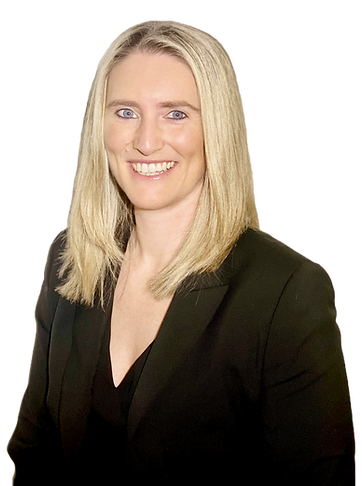
Dr Sarah Cain.
BSc (hons) | MBBS | MIPDEd | FRACS
Personal Profile
Dr Sarah Cain is a Australian trained Neurosurgeon with expertise in both cranial and spinal neurosurgery. Her subspecialty area of interest is neuro-oncology, skull base surgery and minimally invasive spine surgery. Dr Cain focuses on individualised care, utilising the latest technologies to improve patient outcomes.
Dr Cain has dual degrees, a Bachelor of Science with honours (BSc hons) from The University of Melbourne and a Bachelor of Medicine, Bachelor of Surgery (MBBS) from Monash University.
Dr Cain obtained fellowship of the Royal Australasia College of Surgeons (FRACS) after training in major neurosurgical centres including the Royal Melbourne Hospital, Royal Children’s Hospital, The Canberra Hospital and St Vincent’s Hospital Melbourne.
Dr Cain went on to complete dual post fellowship training, completing specialised training in anterior and lateral skull base surgery at Cambridge University Hospital in United Kingdom and in neuro-oncology through the Brain Cancer Centre in Melbourne, Australia.
Dr Cain currently holds public neurosurgery appointments at The Royal Melbourne Hospital (RMH) and The Peter MacCallum Cancer Centre (PMCC) and privately at Melbourne Private Hospital (MPH).
Dr Sarah Cain has extensive research experience, both laboratory and clinical with a focus on improving outcomes of patients with brain cancer. Dr Cain has presented her work at International meetings with world experts. She has collaborated with researchers not only in Australia but also in Switzerland, Sweden and America.
Dr Cain's research includes a honors thesis that was awarded a first class distinction. Her thesis focused on neuro-ocular development and the effects of beta-catenin deletion utilizing highly specific Cre-expressing transgenic mice, and was published in Developmental Biology.
Dr Cain has also worked in the Rees Neurodevelopment Laboratory on a National Institute of Health (NIH) funded baboon model of premature birth, in collaboration with a team in San Antonio Texas, investigating the pathogenesis of brain injury. Dr Cain's research has been presented in Singapore, Canada, United States, United Kingdom and Australia.
Dr Cain's current research interest is peri-operative clinical trials aimed to improve outcomes for patients with brain cancer. As part of her neuro-oncology fellowship under the supervision of Professor Kate Drummond she helped co-ordinated a phase zero clinical trial aimed at improving prognosis for patients with low grade gliomas. A project supported by The Brain Cancer Centre and is now published in Future Oncology and Nature Medicine. Dr Cain is a current WEHI research collaborator within the personalised oncology division and The Brain Cancer Centre.


Current Memberships:
-
Royal Australasian College of Surgeons (RACS)
-
Neurosurgical Society of Australasia (NSA)
-
Cooperative Trials Group for Neuro-Oncology (COGNO)
Committee Positions:
-
RACS Victorian State Committee Elected Member - Current
-
NSA Examination Committee Member - Current
-
Australasian representative on World Federation of Neurosurgeons Young Neurosurgeons Committee - 2023/2024
-
Asian Congress of Neurological Surgeons Young Neurosurgeon Committee - 2023/2024
Private Consulting Locations:
-
Parkville
-
Mornington Peninsula
Public Consulting Locations:
-
Royal Melbourne Hospital
-
Peter MacCallum Cancer Centre

Dr. Sarah Cain completed a year of sub-specialty training in anterior endoscopic and lateral skull base surgery at Cambridge University Hospitals in Cambridge, United Kingdom.
During her time there, Dr. Cain gained extensive experience in lateral skull base surgery, with a particular focus on the management and surgical treatment of vestibular schwannomas. She was also actively involved in the care of patients with Trigeminal Neuralgia, frequently performing procedures such as Microvascular Decompression and Radiofrequency Ablation.
Her anterior endoscopic work included complex surgical interventions for patients with pituitary tumours, anterior skull base tumours, and clival lesions, including chordomas and chondrosarcomas. Dr. Cain had the honour of presenting on the topic of chordomas and chondrosarcomas at the British Skull Base Society Annual Scientific Meeting in Oxford.
Cambridge University Hospitals is internationally recognised for its clinical excellence and pioneering medical research, and serves as a national centre for highly specialised treatment.



There are approximately 2,000 newly diagnosed cases of brain cancer in Australia annually. Treatment for brain cancer varies depending on the type and stage of the tumour but commonly includes surgery, chemotherapy, and radiation therapy.
Dr Sarah Cain is pleased to join the Gamma Knife Radiation Oncology Team at the Peter MacCallum Cancer Centre. In May 2025, the team celebrated a significant milestone—they treated their 1,000th patient using Victoria’s first Gamma Knife machine, which launched in 2021.
Dr Cain will collaborate closely with this specialist radiation oncology team, consulting with patients in outpatient clinics and being present on the day of treatment to apply the stereotactic frame.




